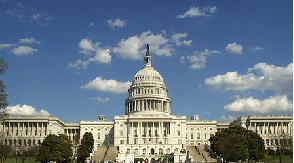 Congress has passed 27 tax increases so far
Congress has passed 27 tax increases so far
By Oregon Tax News,
Congress has raised taxes by $670.341 billion since the new President Obama administration took office in January of 2009. The list below outlines the major new and extended taxes passed by the federal government:
1. Individual Mandate Excise Tax: Effective in January 2014, the tax will require Americans who do not purchase ‘qualifying’ health insurance to pay income surtax.
2. Employer Mandate Tax: Also effective in January 2014, employers that do not offer health coverage to pay an additional non-deductible tax of $2000 for all full-time employees if at least one employee qualifies for a health tax credit. The tax applies to all employers with 50 or more employees. The government expects to raise $65 billion over 10 years with the individual and mandate tax penalties combined.
3. Surtax on Investment Income: The tax creates a 3.8 percent surtax on investment income in households earning at least $250,000 ($200,000 single).
4.Excise Tax on Comprehensive Health Insurance Plans: In January 2018, the government will implement a 40 percent excise tax on “Cadillac” health insurance plans. These plans include $10,200 for a single person or $27,500 per family. The tax also includes higher thresholds of $11,500for a single person household and $29,450 per family for early retirees and high-risk professions.
5. Hike in Medicare Payroll Tax: The increased tax, starting in 2013, is expected to raise $86.8 billion
6. Medicine Cabinet Tax: In 2011, Americans will not be able to use their health savings account (HSA), flexible spending account (FSA), or health reimbursement (HRA) plans to purchase over-the-counter medicines, with the sole exception of insulin.
7. HSA Withdrawal Tax Hike: The hike increases the tax on early withdrawals from a health savings account (HSA), for non-medical reasons, from 10 to 20 percent. However, IRAs and other tax-advantaged accounts will remain at 10 percent.
8. Flexible Spending Account Cap or the “Special Needs Kids Tax”: The tax implements a cap on FSAs of $2500, which may place a burden on the parents of special needs children who often use their FSAs to help pay for the cost of a special needs education.
9. Tax on Medical Device Manufacturers: The law creates a new 2.3% excise tax on medical device manufacturers who employ 360,000 people in 6000 plants across the country. The law exempts items retailing for less than $100.
10. Raise the Threshold for Medical Itemized Deduction: The new provision raises the threshold for deductions from 7.5 to 10 percent for medical expenses to the extent that those expenses exceed 10 percent of the individual’s adjusted gross income (AGI). The increase is waived for 65+ taxpayers in 2013-2016.
11. Tax on Indoor Tanning Services: The law places a 10 percent excise tax on Americans using indoor tanning salons.
12. Elimination of tax deduction for employer-provided retirement: The law eliminates prescription drug coverage in coordination with Medicare Part D
13. Blue Cross/Blue Shield Tax Hike: The special tax deduction for Blue Cross/Blue Shield companies is only allowed if 85 percent or more of premium revenues are spent on clinical services.
14. Excise Tax on Charitable Hospitals: The tax charges hospitals that fail to meet new “community health assessment needs,” “financial assistance,” and “billing and collection” rules set by HHS $50,000.
15. Tax on Innovator Drug Companies: The law imposes a $2.3 billion annual tax on innovator drug companies based on its annual sales.
16. Tax on Health Insurers: The tax will be imposed on firms with $50 million in profits.
17. $500,000 Annual Executive Compensation Limit for Health Insurance Executives
18. Employer Reporting of Insurance on W-2
19. Corporate 1099-MISC Information Reporting: The law requires businesses to send 1099-MISC information tax forms to corporations.
20. “Black liquor” tax hike: This tax increases tax on bio-fuel.
21. Codification of the “economic substance doctrine”: This provision gives the IRS the authority to prohibit legal tax deductions and other legal tax-minimizing plans if the IRS believes the action lacks “substance” and is only intended to reduce taxes owed.
22. Tobacco Tax Increase: The tax increase is expected to raise $65,515 and expand enforcement authority.
23. Stimulus: The stimulus prevents taxpayers from claiming losses of an acquired corporation.
24. UI Benefits, NOL Relief & Homebuyer Credit: The law extends federal unemployment surtaxes through June 2011 and delays the effort to reduce double taxation of worldwide American employers until 2018.
25. HIRE Act: The act delays the reduction of double taxation of worldwide American employers until 2021.
26. Increase the Reserve Ratio of the F.D.I.C.: The law increases the reserve ratio of the Federal Deposit Insurance Corporation. However smaller institutions with less than $10 billion in consolidated assets are exempt from paying any increase.
27. Maximum Deposit Insured by the F.D.I.C.: The law sets the maximum deposit at $250,000 per account, a change that would further raise the amount banks must pay toward the coverage.
Disclaimer: Articles featured on Oregon Report are the creation, responsibility and opinion of the authoring individual or organization which is featured at the top of every article.


